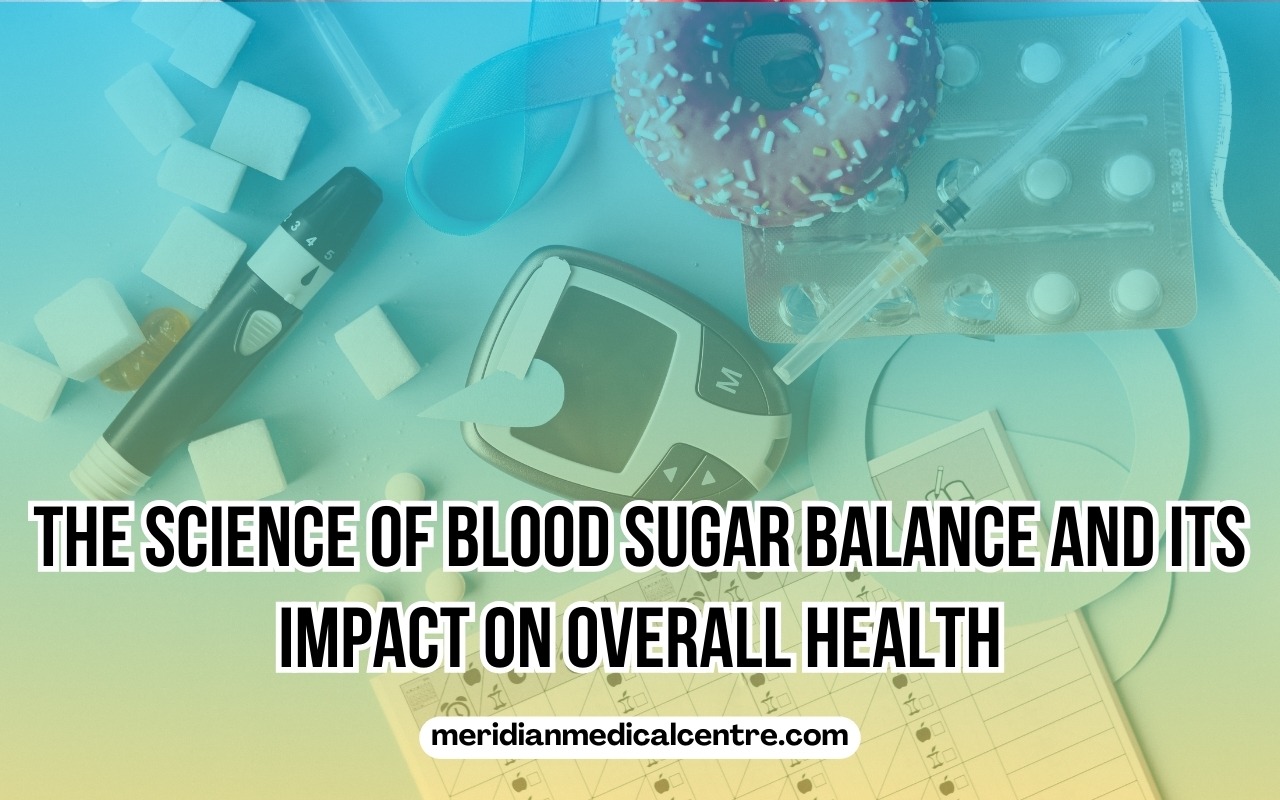 Blood sugar, or blood glucose, is often referred to as the body's primary source of energy. It stems from the food we consume, particularly carbohydrates, which are broken down into glucose and sent into the bloodstream. This balance, however, is crucial—too little or too much blood sugar can lead to serious health complications, particularly in the context of diabetes. Understanding the science of blood sugar balance and its impact on overall health is essential for everyone, but particularly for those with or at risk for diabetes.
Blood sugar, or blood glucose, is often referred to as the body's primary source of energy. It stems from the food we consume, particularly carbohydrates, which are broken down into glucose and sent into the bloodstream. This balance, however, is crucial—too little or too much blood sugar can lead to serious health complications, particularly in the context of diabetes. Understanding the science of blood sugar balance and its impact on overall health is essential for everyone, but particularly for those with or at risk for diabetes.
Maintaining stable blood sugar levels is not just about avoiding diabetes; it is also a key factor in enhancing overall health. The fluctuations in blood sugar can affect energy levels, mood, cognitive function, and even hormone regulation. This article will explore the mechanisms behind blood sugar regulation, the consequences of imbalances, and effective strategies for maintaining healthy levels.
Blood Sugar Regulation Mechanisms
The body relies on a sophisticated system to maintain glucose levels within a narrow range. When we consume food, especially carbohydrates, the digestive system breaks these carbohydrates down into glucose. Following a meal, blood glucose levels rise, which triggers the pancreas to release insulin, a hormone that facilitates the uptake of glucose by the cells for energy.
Insulin essentially acts as a key, unlocking the cells so they can absorb glucose. This process is vital; without proper insulin function, glucose cannot enter the cells, leading to elevated blood sugar levels. Over time, if the body cannot produce sufficient insulin or if the cells become resistant to insulin's effects, type 2 diabetes may develop. This condition not only affects blood sugar levels but can also lead to serious complications, including heart disease, kidney damage, and vision problems.
Conversely, when blood sugar levels drop, such as between meals or during prolonged periods of fasting, the pancreas releases another hormone known as glucagon. This hormone signals the liver to release stored glucose back into the bloodstream, ensuring a constant supply of energy to vital organs, particularly the brain.
The balance between insulin and glucagon is fundamental for maintaining homeostasis in the body. However, several factors can disrupt this balance, including diet, physical activity, stress, and sleep patterns.
The Effects of Poor Blood Sugar Control
When blood sugar levels are consistently elevated, a condition known as hyperglycemia occurs. Symptoms can include increased thirst, frequent urination, fatigue, and blurred vision. Chronic hyperglycemia can lead to long-term complications such as cardiovascular disease, nerve damage, and impaired kidney function.
On the other end of the spectrum is hypoglycemia, or low blood sugar, which can occur due to excessive insulin production or inadequate food intake. Symptoms often include dizziness, confusion, sweating, and in severe cases, seizures or loss of consciousness. This precarious balance highlights the importance of maintaining stable blood sugar levels.
Research has shown that imbalances in blood sugar can also affect cognitive function and mental health. High glucose variability has been linked to increased feelings of anxiety and depression. Additionally, studies indicate that individuals with diabetes may experience cognitive decline at an accelerated rate compared to those without diabetes, underscoring the critical need for effective blood sugar management.
Beyond immediate symptoms, the long-term health implications associated with poor blood sugar control are significant. Cardiovascular disease remains a leading cause of death for individuals with diabetes, with high blood sugar levels contributing to inflammation and the hardening of arteries. This condition, known as atherosclerosis, can result in heart attacks and strokes.
Benefits of Balancing Blood Sugar
The advantages of stabilizing blood sugar levels extend far beyond just preventing diabetes and its complications. Improved glucose regulation enhances energy levels, steadies moods, and promotes cognitive clarity. By actively managing blood sugar, individuals can experience fewer cravings, reduced fatigue, and increased overall well-being.
Energy Levels
When blood sugar levels are consistently in check, energy levels remain stable throughout the day. Frequent spikes and dips in glucose can lead to feelings of lethargy and fatigue. In contrast, stable glucose levels ensure a steady supply of energy, allowing individuals to maintain their focus and productivity.
Mood Stability
Fluctuating blood sugar levels can lead to mood swings, irritability, and increased anxiety. By keeping blood glucose levels balanced, individuals can mitigate these emotional swings, promoting a more stable and positive mental state. Regular exercise, a balanced diet, and mindfulness practices can all contribute to maintaining steady blood sugar levels, which in turn supports emotional health.
Cognitive Function
The brain relies heavily on glucose for energy, making it particularly sensitive to fluctuations in blood sugar. Research has shown that stable blood sugar levels are associated with improved cognitive performance, including enhanced memory and focus. This is particularly crucial for students and professionals who rely on mental sharpness to perform effectively.
Hormonal Health
Blood sugar levels also play a significant role in hormone regulation. Insulin, glucagon, and other hormones like cortisol are intricately linked to glucose metabolism. Unstable blood sugar levels can disrupt the endocrine system, leading to hormonal imbalances that may affect everything from appetite to stress response. Stable blood glucose can help mitigate conditions such as polycystic ovary syndrome (PCOS), weight gain, and other metabolic disorders.
Strategies for Maintaining Healthy Blood Sugar Levels
Achieving and maintaining balanced blood sugar levels requires a multifaceted approach that includes diet, exercise, lifestyle changes, and stress management.
Balanced Diet
One of the most effective strategies for regulating blood sugar is through dietary choices. Whole foods that are high in fiber, healthy fats, and lean proteins are ideal. Foods such as vegetables, whole grains, nuts, seeds, and legumes can help slow the absorption of sugar into the bloodstream, preventing spikes in blood sugar.
Avoiding refined carbohydrates and added sugars is crucial as well. Foods like white bread, pastries, and sugary drinks can cause rapid increases in blood glucose, leading to the cycle of spikes and crashes. When consuming carbohydrates, pairing them with proteins and healthy fats can further stabilize blood sugar levels.
Regular Physical Activity
Exercise plays a vital role in blood sugar management. Physical activity increases insulin sensitivity, enabling cells to utilize glucose more effectively. Regular aerobic and resistance training can help maintain a healthy weight, which is important for preventing insulin resistance.
Engaging in at least 150 minutes of moderate aerobic activity each week, combined with strength training exercises, can significantly improve metabolic health and help keep blood sugar levels in check. Simple activities like walking, gardening, and cycling can all contribute to better blood glucose control.
Stress Management
Stress is a significant factor that affects blood sugar levels. When the body is stressed, it releases hormones such as cortisol and adrenaline, which can lead to elevated glucose levels. Techniques such as deep breathing, meditation, yoga, and mindfulness can be effective in reducing stress and its impact on blood sugar.
Establishing a consistent routine and prioritizing self-care can help individuals manage stress more effectively. Recognizing stress triggers and finding constructive ways to deal with them is essential for maintaining overall health and well-being.
Consistent Sleep Patterns
Sleep plays a critical role in regulating hormonal balance, including insulin sensitivity. Poor sleep quality can lead to increased insulin resistance and heightened blood sugar levels. Striving for 7–9 hours of quality sleep each night can enhance metabolic health and improve overall blood glucose regulation.
Establishing a calming bedtime routine, creating a sleep-friendly environment, and avoiding electronic devices before bed can all contribute to better sleep quality. Recognizing the importance of sleep in overall health is crucial for anyone looking to achieve stable blood sugar levels.
Monitoring Blood Sugar Levels
For individuals with diabetes or those concerned about their blood sugar levels, regular monitoring is essential. Blood glucose meters and continuous glucose monitors (CGMs) provide valuable insights into how food, exercise, and lifestyle choices affect blood sugar. Monitoring enables individuals to make informed decisions about their health and adjust their behavior accordingly.
Understanding one's blood glucose patterns can empower individuals to recognize how different foods and activities impact their levels. This knowledge can lead to better dietary choices and more effective management of overall health.
Conclusion
The science of blood sugar balance is complex, yet it is fundamental to overall health. By understanding how blood sugar regulation works and the profound effects it has on well-being, individuals can take proactive steps to maintain balanced levels. Through thoughtful dietary choices, regular physical activity, effective stress management, and consistent sleep habits, anyone can improve their blood sugar health.
The journey towards balanced blood sugar and better health may require dedication and lifestyle adjustments, but the benefits are worth the effort. Enhancing energy levels, stabilizing moods, and improving cognitive function are just a few of the positive outcomes that come with effective blood sugar management. Embracing this knowledge empowers individuals to take charge of their health, paving the way for a healthier, happier life.
For more information on how to manage blood sugar levels effectively, you can visit MedlinePlus. Additionally, Healthline provides valuable insights into preventing blood sugar spikes and maintaining optimal health.
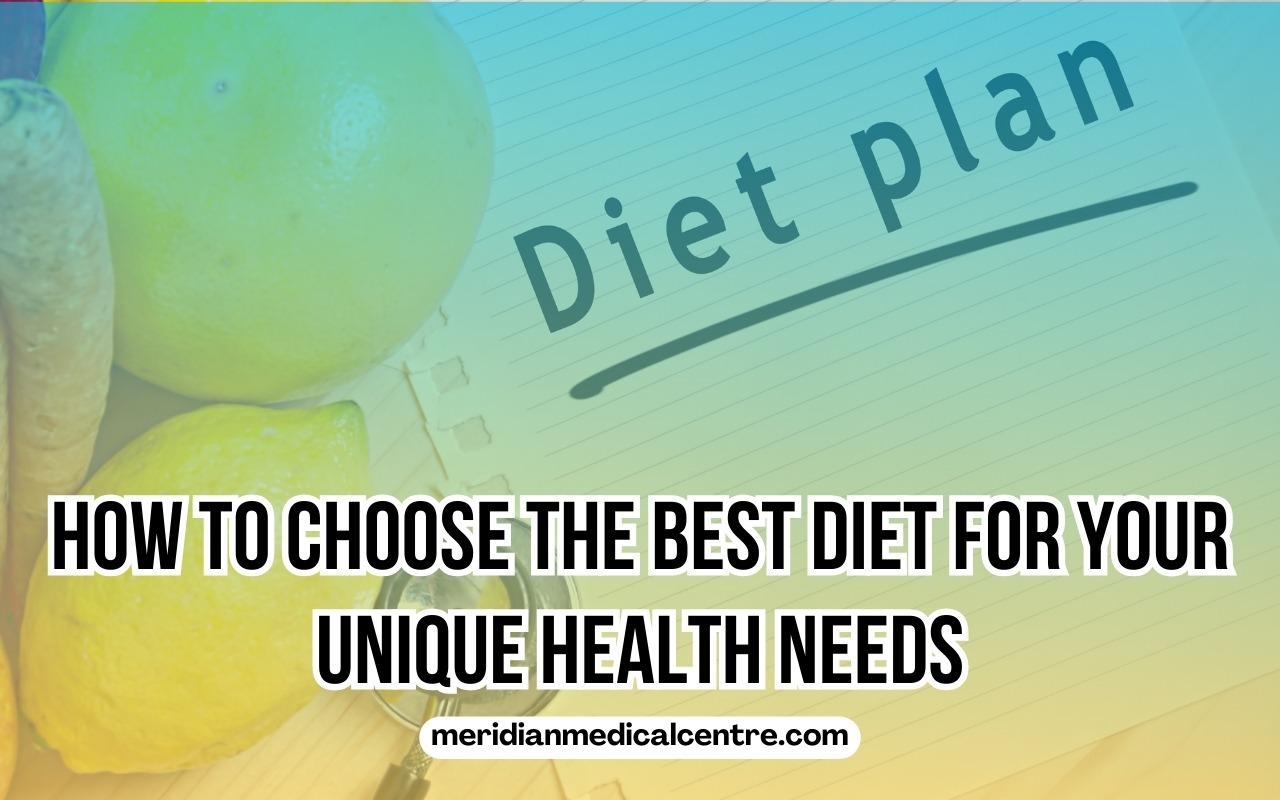 Choosing a diet tailored to your unique health needs can be a daunting task, particularly with the vast array of diets available today. Each diet claims to hold the key to better health, weight loss, or increased energy. However, understanding how to select the right dietary pattern is essential to ensure it aligns with your lifestyle, health goals, and nutritional requirements. This guide aims to illuminate the process of choosing the best diet for you, incorporating expert insights, scientific principles, and practical advice.
Choosing a diet tailored to your unique health needs can be a daunting task, particularly with the vast array of diets available today. Each diet claims to hold the key to better health, weight loss, or increased energy. However, understanding how to select the right dietary pattern is essential to ensure it aligns with your lifestyle, health goals, and nutritional requirements. This guide aims to illuminate the process of choosing the best diet for you, incorporating expert insights, scientific principles, and practical advice.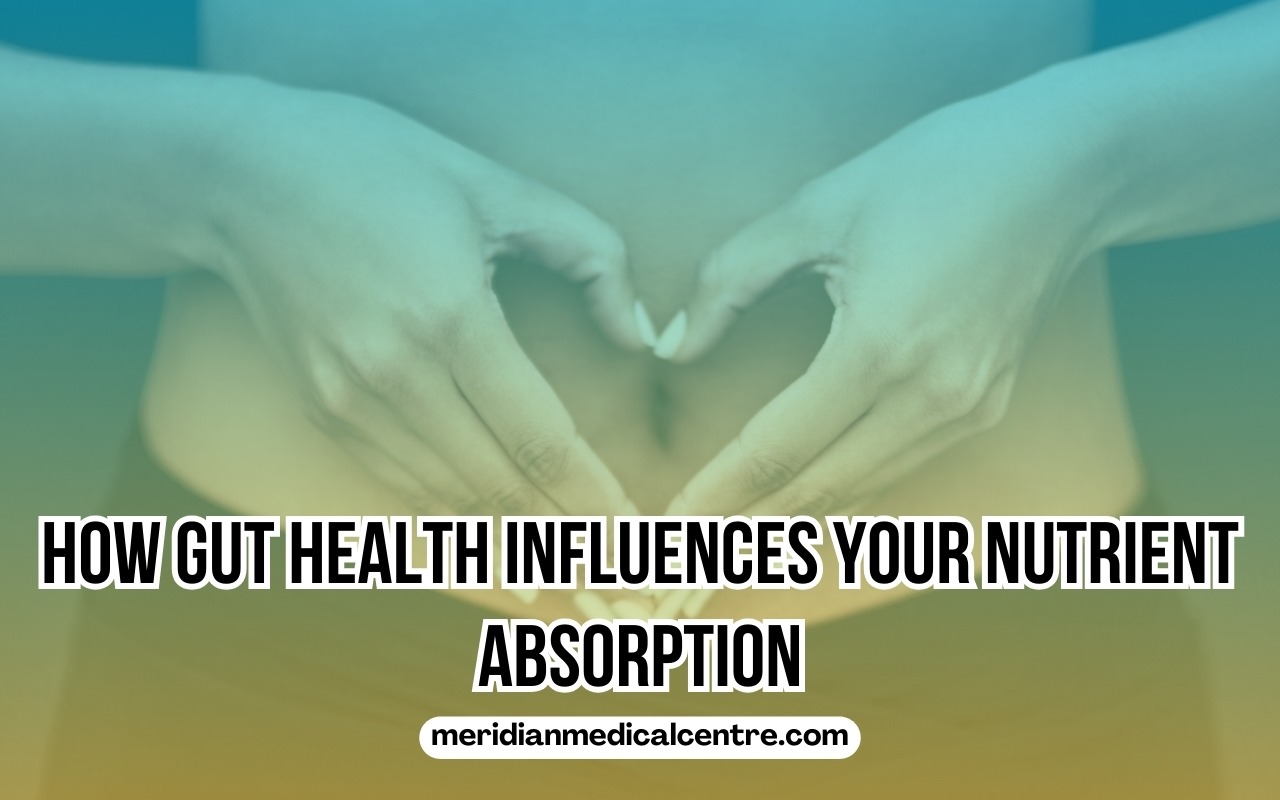 The human body is a complex ecosystem, teeming with life, and at the core of this intricate system lies the gut microbiome. Spanning the entire digestive tract, from the esophagus to the intestines, our gut hosts trillions of microbes that play an indispensable role in our overall health. A well-balanced gut microbiome is crucial for effective nutrient absorption, which directly influences our energy levels, immune function, mood, and even weight management. Understanding this connection can empower individuals to make informed dietary choices that enhance their gut health and, in turn, improve nutrient absorption.
The human body is a complex ecosystem, teeming with life, and at the core of this intricate system lies the gut microbiome. Spanning the entire digestive tract, from the esophagus to the intestines, our gut hosts trillions of microbes that play an indispensable role in our overall health. A well-balanced gut microbiome is crucial for effective nutrient absorption, which directly influences our energy levels, immune function, mood, and even weight management. Understanding this connection can empower individuals to make informed dietary choices that enhance their gut health and, in turn, improve nutrient absorption.
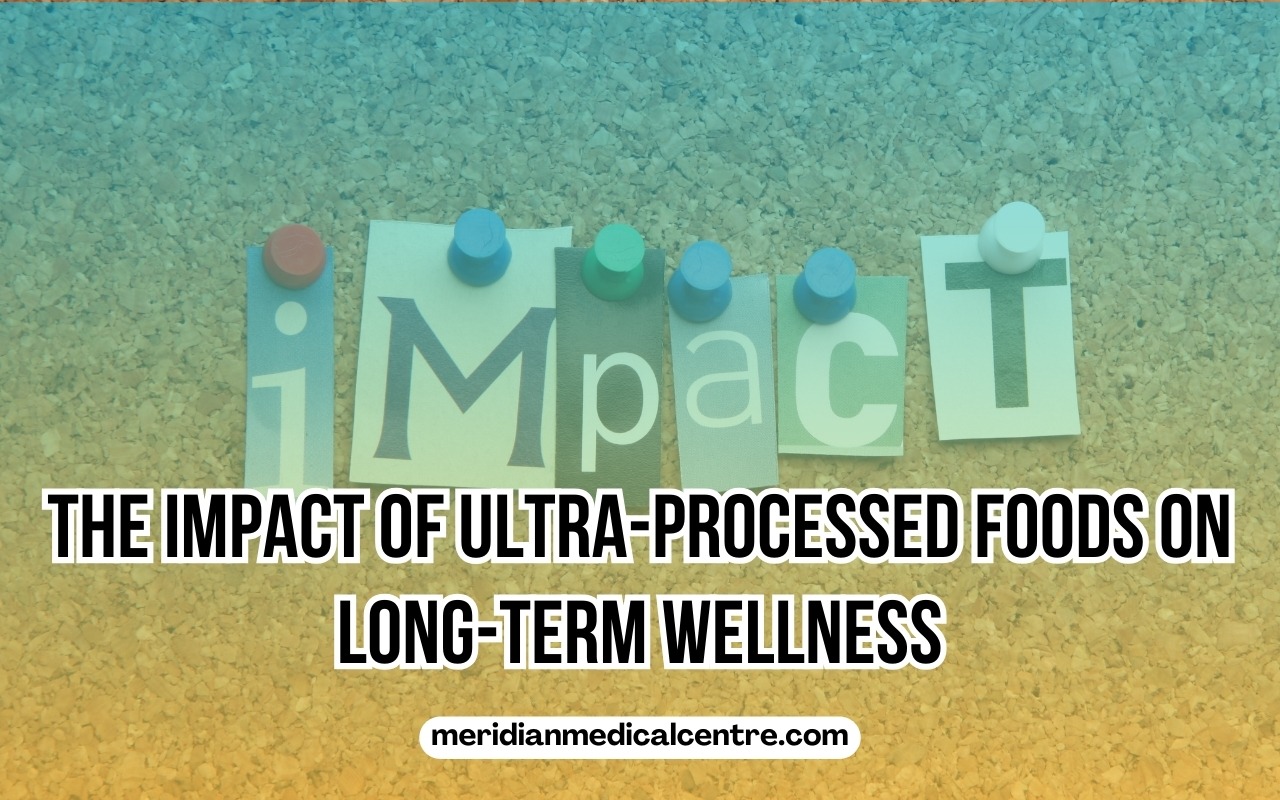 In recent years, the food landscape has evolved dramatically, with ultra-processed foods (UPFs) becoming predominant in many diets around the world, particularly in the United States. People often turn to these foods for convenience, affordability, and palatability. However, a growing body of research reveals that a diet high in ultra-processed foods is linked to a range of adverse health outcomes. This article explores the implications of consuming such foods on long-term wellness, highlighting the associated health risks and providing insights on how to make healthier dietary choices.
In recent years, the food landscape has evolved dramatically, with ultra-processed foods (UPFs) becoming predominant in many diets around the world, particularly in the United States. People often turn to these foods for convenience, affordability, and palatability. However, a growing body of research reveals that a diet high in ultra-processed foods is linked to a range of adverse health outcomes. This article explores the implications of consuming such foods on long-term wellness, highlighting the associated health risks and providing insights on how to make healthier dietary choices.


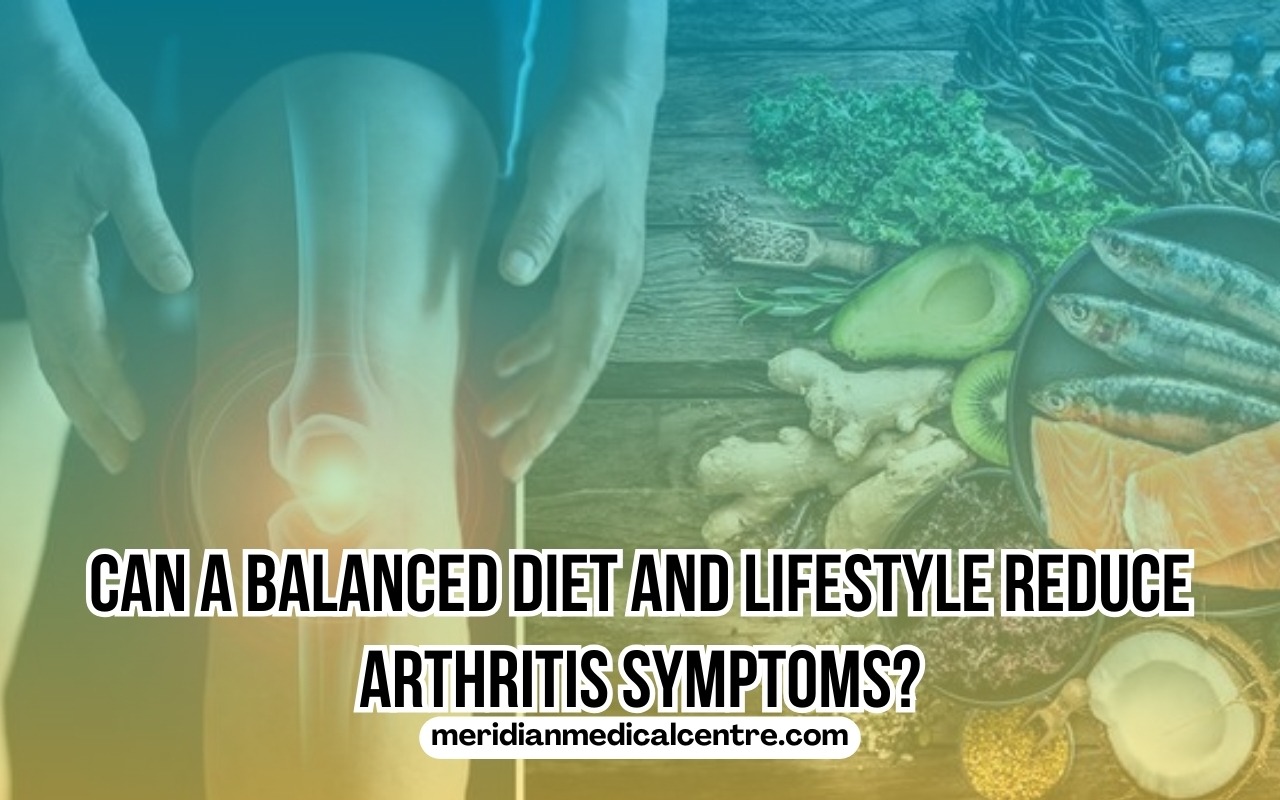 Arthritis, a term often used to describe a group of conditions that cause inflammation in the joints, affects millions of individuals worldwide. In the United States alone, over 54 million adults live with some form of arthritis, with osteoarthritis being the most common, impacting more than 32 million people. While many may think of arthritis as an inevitable part of aging, understanding its treatment options can lead to a much more manageable life. This article explores the critical role that a balanced diet and lifestyle can play in alleviating arthritis symptoms, offering insight into dietary choices, exercise regimens, and lifestyle modifications that can make a significant difference.
Arthritis, a term often used to describe a group of conditions that cause inflammation in the joints, affects millions of individuals worldwide. In the United States alone, over 54 million adults live with some form of arthritis, with osteoarthritis being the most common, impacting more than 32 million people. While many may think of arthritis as an inevitable part of aging, understanding its treatment options can lead to a much more manageable life. This article explores the critical role that a balanced diet and lifestyle can play in alleviating arthritis symptoms, offering insight into dietary choices, exercise regimens, and lifestyle modifications that can make a significant difference. As we age, maintaining a healthy metabolism becomes an essential aspect of our overall well-being. The metabolic process is pivotal, converting food into energy necessary to fuel our daily activities. However, it is no secret that metabolism tends to slow down with age, causing a myriad of challenges, including weight gain and decreased energy levels. Fortunately, there are effective strategies to combat these age-related changes. This article will explore various methods for maintaining a healthy metabolism as you navigate the complexities of aging.
As we age, maintaining a healthy metabolism becomes an essential aspect of our overall well-being. The metabolic process is pivotal, converting food into energy necessary to fuel our daily activities. However, it is no secret that metabolism tends to slow down with age, causing a myriad of challenges, including weight gain and decreased energy levels. Fortunately, there are effective strategies to combat these age-related changes. This article will explore various methods for maintaining a healthy metabolism as you navigate the complexities of aging.